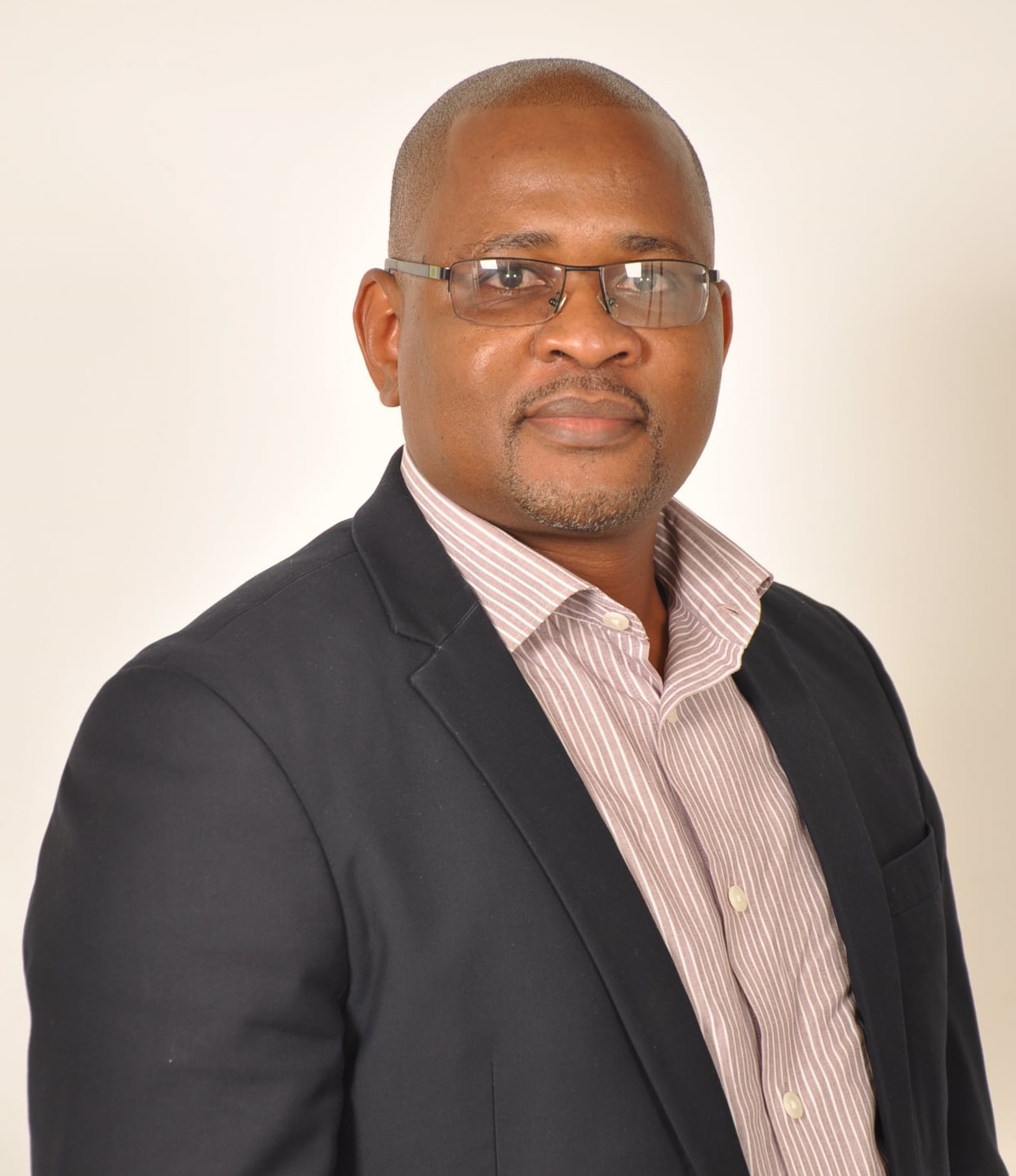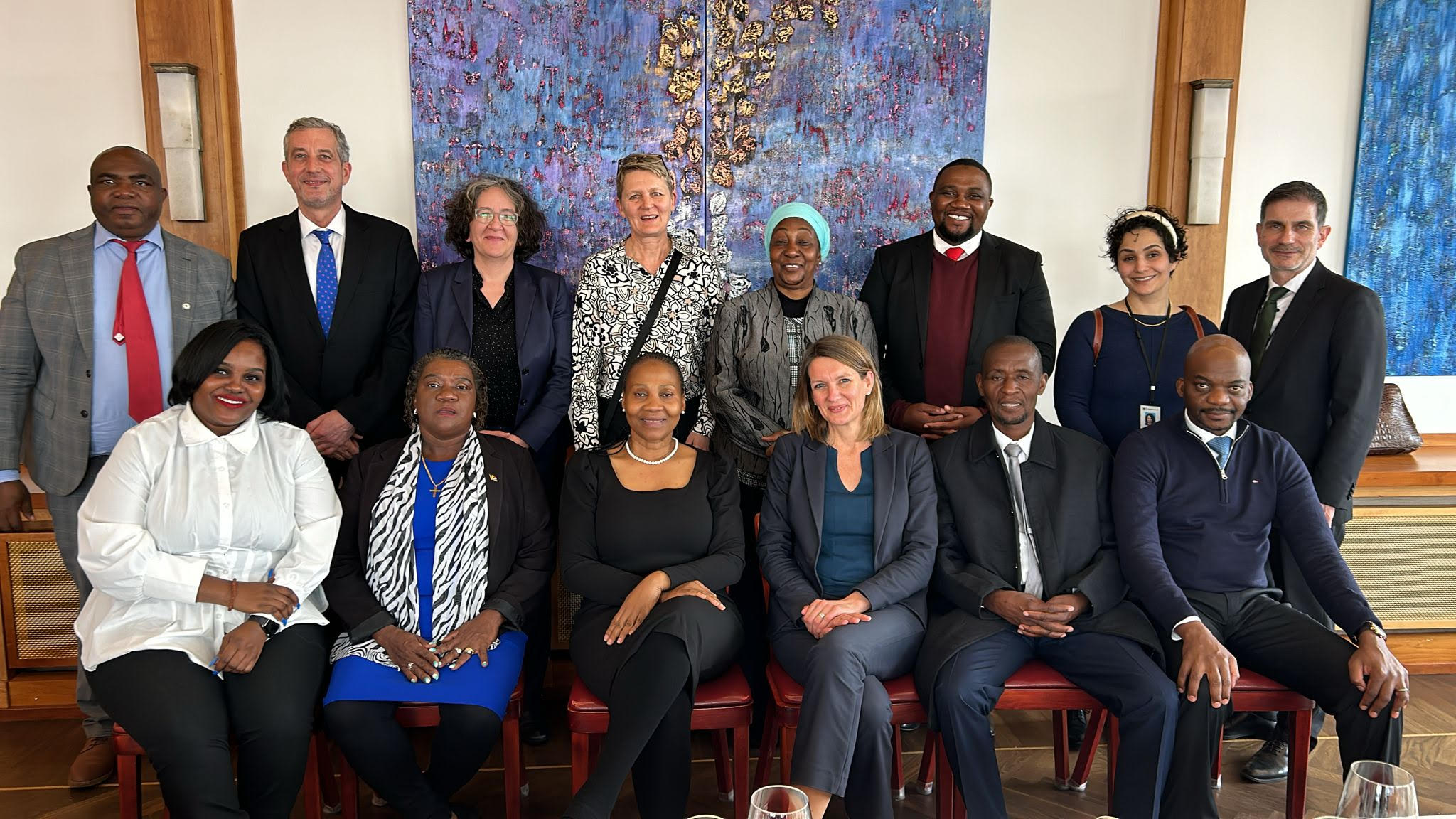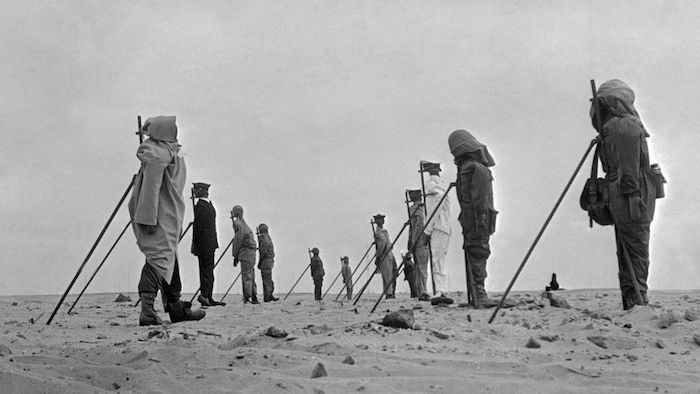
The continued fallout from the nuclear tests carried out by France in the desert of its former colony, Algeria, continues to pollute relations between the two countries more than 60 years later, as Maher Mezahi reports from Algiers.
On the morning of 13 February 1960, just 45 minutes after the French army detonated an atomic bomb as a test in the Algerian Sahara, President Charles de Gaulle sent a message to his army minister.
“Hoorah for France,” read the note.

“This morning she is stronger and prouder. From the bottom of my heart, I thank you and those who have achieved this magnificent success.”
The detonation of the plutonium-filled bomb – known as Blue Jerboa – and the subsequent 16 explosions of nuclear weapons in Algeria were seen as a display of French strength and development.
At the time, Algeria was a French colony.
Yet the atmosphere on the ground, where 6,500 French engineers, soldiers and researchers worked on the project alongside 3,500 Algerian manual labourers, was less celebratory.
The bomb had been placed on top of a 100m-tall tower before the explosion.
Witnesses recount feeling the ground shake and, when permitted to face the blast, seeing a gigantic mushroom cloud.
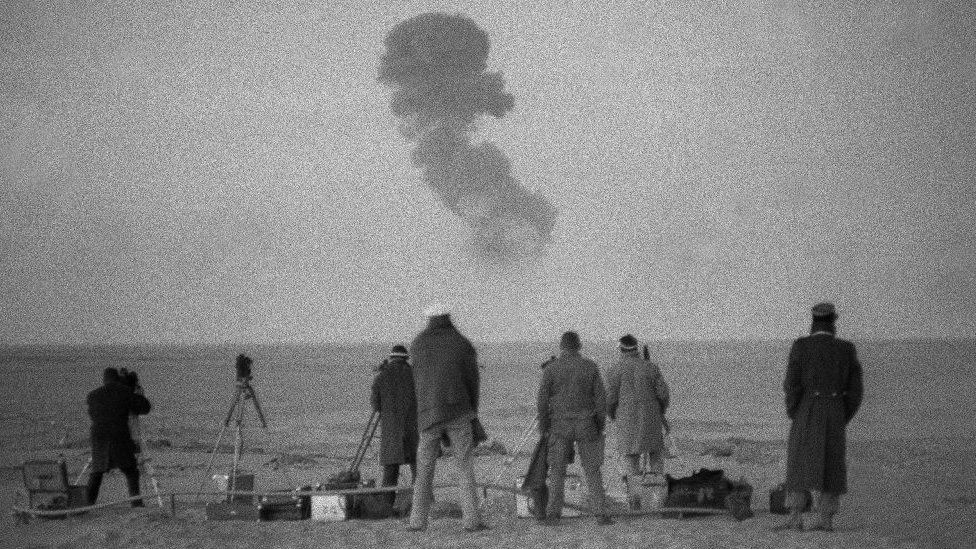
The extreme temperatures near the blast transformed the sand into black shards.
Blue Jerboa was three times more powerful than the bomb dropped by the US on Nagasaki, Japan, in 1945, which destroyed everything within 1.6km (one mile) of the explosion.
The detonation of such a powerful weapon in south-western Algeria was justified by General Charles Ailleret, who was in charge of the operation and said “the total absence of all signs of life” was “essential in choosing the site”.
Yet dozens of kilometres away, the inhabitants of the town of Reggane begged to differ.
“1960 when the bomb detonated, there were more than 6,000 inhabitants. Reggane was not in the middle of nowhere”
Abderrahmane Toumi, Founder of charity for radiation sufferers
Abderrahmane Toumi’s family moved to the oasis after the tests in 1965. But later in life he was so affected by the suffering of the local population that in 2010 he set up an association to fight for those who were suffering from the effects of nuclear radiation.
“In 1960 when the bomb detonated, there were more than 6,000 inhabitants. Reggane was not in the middle of nowhere,” the 57 year-old told the BBC.
“From what we are told by researchers, long-term effects started around 20 years after the first bomb was detonated and they will continue to last for decades.
“Many of those who were contaminated have already passed away due to unknown medical causes. They were told they had rare illnesses but they didn’t really know the specific nature of their illness,” Mr Toumi explained.
Immediately after the Blue Jerboa blast, there were protests across the region as nuclear fallout from the bomb would be detected as far as Senegal, Ivory Coast, Burkina Faso and Sudan.
There was also a demonstration in Leipzig, in what was then East Germany, by Malian students there denouncing the test which took place just a few hundred kilometres from their hometowns.
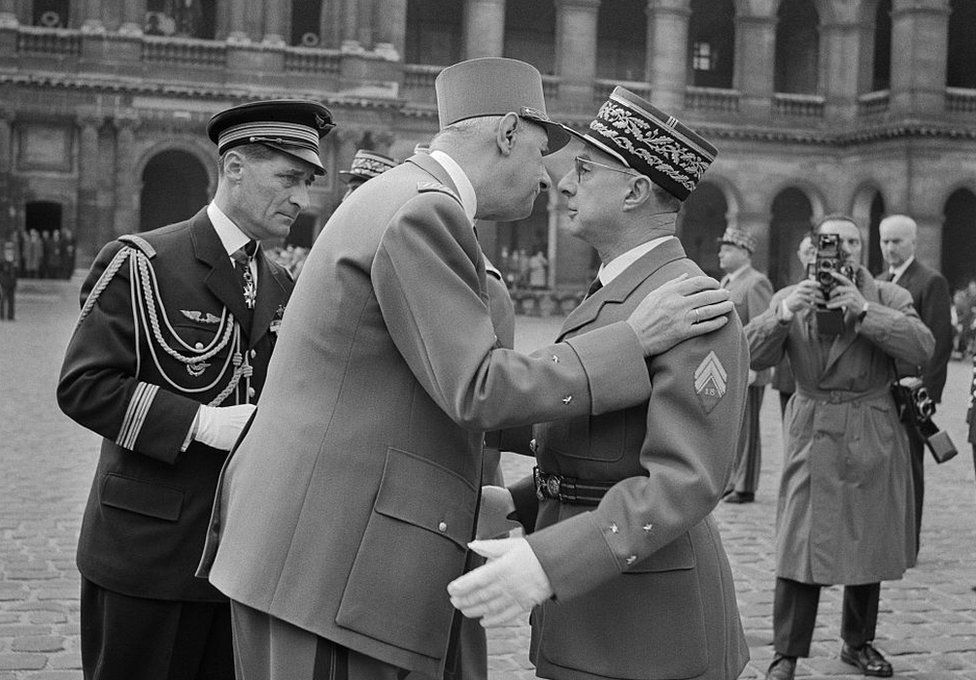
After France signed the Comprehensive Nuclear Test-Ban Treaty, a 1998 French senate report stated that “French atmospheric explosions were the subject of increasing criticism from African countries neighbouring the Sahara”.
“They did not understand why we would continue to use an obviously polluting technique despite all the precautions taken to minimize the fallout,” the report said, without specifying what those precautions were.
After four tests above ground in the Reggane region, in 1961 the French authorities decided to conduct underground tests in In Ekker, 700km away in the picturesque Hoggar mountain range.
But even the underground tests caused pollution.

During the detonation of the bomb known as Beryl, for example, radioactive matter was spewed into the atmosphere because the underground shaft at the blast site was not properly sealed.
As the explosion shook the mountain range above, monitors quickly urged the officials away from the zone as the bomb had opened fissures in the mountain and nuclear waste seeped into the air.
Nine soldiers were heavily contaminated by the experiment, as were a slew of government officials who were invited to attend a viewing of the blast.
After more than a dozen underground nuclear tests near In Ekker, the French army shifted its experiments to French Polynesia in the Pacific Ocean.
You may also be interested in:
The tale of Algeria’s stolen cannon and France’s cockerel
Yet, the fallout from French nuclear experimentation in the Sahara continues to pollute French-Algerian relations.
Local researchers estimate that thousands of Algerians have suffered the effects of nuclear radiation across the Algerian Sahara, and many of the sites are yet to be decontaminated.
The issue has taken on even more importance in the wake of a decision by the two nations to establish a commission with the purpose of proposing measures that would ease relations, which are still shaped by 132 years of colonisation.
In his report on that relationship, commissioned by French President Emmanuel Macron, historian Benjamin Stora addressed the nuclear issue, saying that France and Algeria should work together to clean up the test sites.
But he did not talk much about compensation and his proposals were too vague for those Algerians who say they continue to suffer from the effects of the French tests.
“Stora is like a tailor. He sewed up exactly what France needs,” laughs Mohamed Mahmoudi, a 49 year-old activist who believes he was exposed to radiation in the early 1990s while doing his military service near Reggane.
He says that at the time no-one told him of the risks of being in the region.
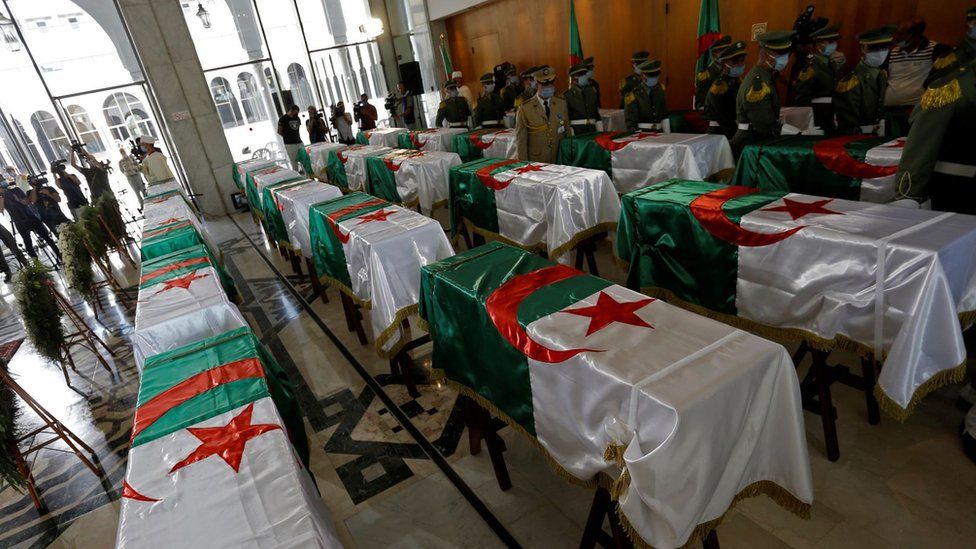
In an email sent to the BBC, the French foreign ministry said that “a radiological diagnosis of the various test areas at these sites has been established and shared with the Algerian authorities”.
In 2010, the French parliament passed the Morin law which should, in theory, compensate victims of nuclear radiation in Algeria.
However, the law requires claimants to have been residents of the region while the tests were taking place and only recognises certain illnesses.
As a result, victims like Mr Mahmoudi do not qualify.
Nevertheless, he says he has helped document more than 800 eligible cases.
The Compensation Committee of Victims of Nuclear Tests, which was created by the Morin law, reports that only one of 545 cases where money has been paid was to an Algerian – all of the others are from French Polynesia.
In response, the French foreign ministry said that the country “will continue to examine the cases presented”.
France in Algeria – key dates
1830: France occupies Algiers
1848: After an uprising led by rebel leader Abd-el-Kader, Paris declares Algeria to be an integral part of France
1945: Thousands killed in pro-independence demonstrations in Sétif
1954-62: Algerian War of Independence
1962: Algeria becomes an independent state
1960-66: Nuclear tests allowed to continue after independence
In early February, Algerian General Bouzid Boufrioua launched a scathing attack on his French counterparts in the military magazine, El Djeich.
“France must come to terms with its historic responsibilities,” he said and referred to a 2017 treaty on the prohibition of nuclear weapons, which no nuclear power signed or ratified.
“This is the first time that the international community has asked the nuclear powers to rectify the mistakes of the past.”
For Mr Toumi, and the victims he speaks to on a daily basis, correcting errors of the past begins with decontaminating the polluted sites.
“There is nuclear waste underground and we do not even know where it is located,” he says, referring to the fact that the Algerian government is yet to be handed complete maps of the French experiments in Reggane and In Ekker.
“Patients simply want to live in their hometowns without nuclear waste, that is all.”
SOURCE: BBC






